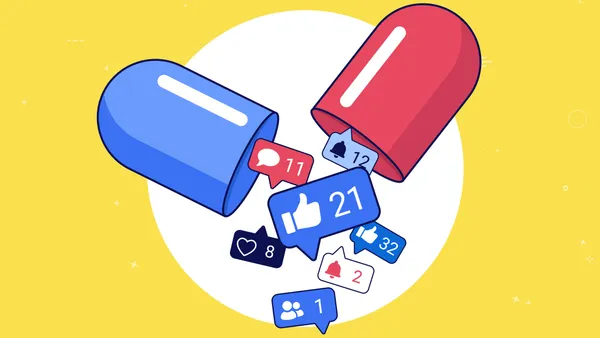The huge increase in high-quality information on patients and their interactions with HCPs is demanding a big shift in our marketing efforts. Marketers must now understand that success isn’t only about generating data — it’s also about generating insights from that data, and then actions from those insights.
According to an IBM report, 90% of all the world’s data was created only in the past two years. The rate at which structured and unstructured data are being generated is accelerating rapidly. Although this boom derives from all sectors of the global economy, the healthcare industry is responsible for a monster share of the growth.
Now consider this: for a long time, healthcare data was simply a by-product of healthcare — recording diagnostic codes, reporting laboratory test results, keeping medical records, and so forth. Over the past decade, however, the value of this data has become much more apparent. Enter not just “Big Data," but “Smart Data."
Smart Data
Although it is continually being redefined, Smart Data currently refers to the type, volume, and validity of data, but also, and most important, to how data is used. Where data helps us identify facts, Smart Data goes much further.
For example, in our heavily data-based healthcare ecosystem, we have become very familiar with medical facts, but now we are learning something strikingly new: The huge increase in high-quality information on patients and their interactions with HCPs is demanding a big shift in our marketing efforts. Marketers must now understand that success isn’t only about generating data — it’s also about generating insights from that data, and then actions from those insights.
Using Data to Transform the Ecosystem
Data can be just a by-product of our industry, or it can be so much more. How do we demonstrate the value of healthcare data? How can we make smarter systems out of our data storage facilities and clearinghouses? The answer is that we can use healthcare data to help improve the healthcare ecosystem. Increased understanding of the hundreds of millions of patient–HCP interactions and touch points can lead to lower medical costs, better treatment, and extended quality of life.
As data collectors and sharers, we must get a better handle on how our efforts are benefiting the healthcare system. Results have included improved patient outcomes, more effective practice management, improved care coordination, precision medicine, reduced healthcare costs, and increased study participation. Data — or, rather, effective data use —helps us achieve these goals. Data helps us pinpoint what works and what doesn’t work; knowledge we can use to evolve the healthcare system and create efficiencies. As long as privacy concerns are addressed, improved results will accrue to nearly every person involved, from patient to provider and payer.
Instinctive Data
Instinctive Data is a product that has long been harnessing and evolving the power of healthcare data. Its setup is simple — a database of more than 41 million patient lives, and a direct connection to these patients’ HCPs. But the results are important and far-reaching. Instinctive Data helps doctors use their own data to guide their patient treatment plans and link their patients to ongoing clinical trials. The product uses a unique data-based messaging system to get the most relevant disease-state and brand messages in front of the right doctors’ eyes. In other words, it gives doctors the tools they need to create self-assisting action plans for patient care. Moreover, in alerting HCPs to patients who have conditions that may respond to particular treatments, Instinctive Data is also helping the manufacturers of these treatments to strategically target specific clinical needs.
The evidence that Instinctive Data is reaching HCPs and assisting them as they care for their patients comes from an analysis of large volumes of HCPs’ own relevant patient-level data. According to this analysis, HCPs are changing their behavior in order to provide their patients with precision medicine.
Instinctive Data is just one example of how the evolution of data — and how data is used — can benefit everyone.
MD On-Line Inc. (MDOL) is a proven industry-leading provider of electronic healthcare solutions that leverage data to improve provider workflow and industry connectivity. For more information, visit mdol.com.









